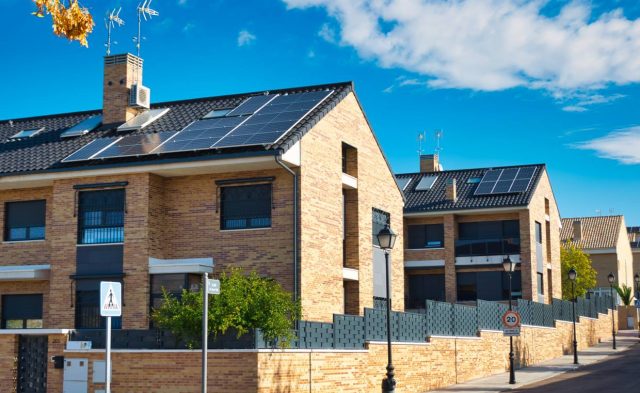The world’s collective shift towards sustainable and renewable energy sources has triggered a surge in the demand for solar panels. Another factor driving this demand is most people’s preference for solar power as an alternative to conventional electricity sources. But, there is some debate on the difference between residential and commercial solar panels costs.
This blog post aims to highlight what solar panels cost in 2023.
What Determines Solar Panel Cost?
The cost of solar panels depends on several factors, such as the system size and the complexity of installation. Other elements that can influence expenses include the need for a solar battery, the solar panel and component brand, and your chosen solar installer.
In the Beginning: Upfront Costs
Both residential and commercial solar panels require a significant upfront investment. This requirement includes the panels’ cost and the necessary equipment for their installation, such as inverters and batteries.
While it is hard to put an exact figure, the cost per watt is a significant indicator. As of 2022, most states in Australia saw solar system prices exceed the $1 per watt mark (fully installed and after any applicable solar rebates and subsidies).
So, in 2023:
- Home solar panel installation output- 3kW to 6.6 kW. So, you can expect residential solar panels to cost $4,000 to $10,000.
- Commercial solar panels need to be capable of higher outputs. But, at up to $0.92 per watt, they typically cost less than residential solar panels. Therefore, an average business setup between 10kW and 100kW may record an initial solar panel cost of $10,000 to $88,000.
Money Saved: Operational Costs
While upfront costs are noticeable, the operational costs over the lifetime of the solar panels are where you will realise significant savings. Both residential and commercial solar panel systems have virtually zero operating costs. Any required maintenance is minimal and infrequent, saving you considerably compared to traditional power sources.
Considering the typical solar panel lifespan (25 years), an average residential solar panel system will offer savings between $20,000 and $30,000 in total (accounting for the average electricity prices). Conversely, commercial solar systems can save businesses upwards of $50,000 in the same time.
An Incentivised Move: Solar Subsidies
Another critical factor that impacts the cost of both residential and commercial solar panels is government incentives and subsidies. These might include solar rebates or grants. The Australian Federal Government runs two types of solar rebate programs based on scale. They are the Small Scale Renewable Energy Scheme (SRES) for households and the Large Scale Renewable Energy Target (LRET) for larger commercial applications. There are also state-specific incentives available. For example, in NSW, you can benefit from state government solar rebates or solar feed-in tariffs.
The eligibility and extent of these incentives vary significantly depending on your location. Hence, it’s best to research your local policies before installing a system.
A Conclusion: Which One is More Cost-Effective?
The ultimate cost-effectiveness of residential vs. commercial solar panels comes down to the specific context of your usage and requirements. Due to their more extensive scale, commercial solar power installations can achieve economies of scale that bring down the cost per watt. This attribute makes it a viable option for businesses with significant power needs.
On the contrary, considering the space constraint at homes, residential solar panels are designed to maximize energy generation in a limited area, even though the cost per watt may be higher.
Initially, solar panel installations can be significantly financially limiting. However, they also have an incredibly positive effect on your pockets and the environment. Whether for your home or business, contacting a solar installer is not merely an expense but an investment in the future.


